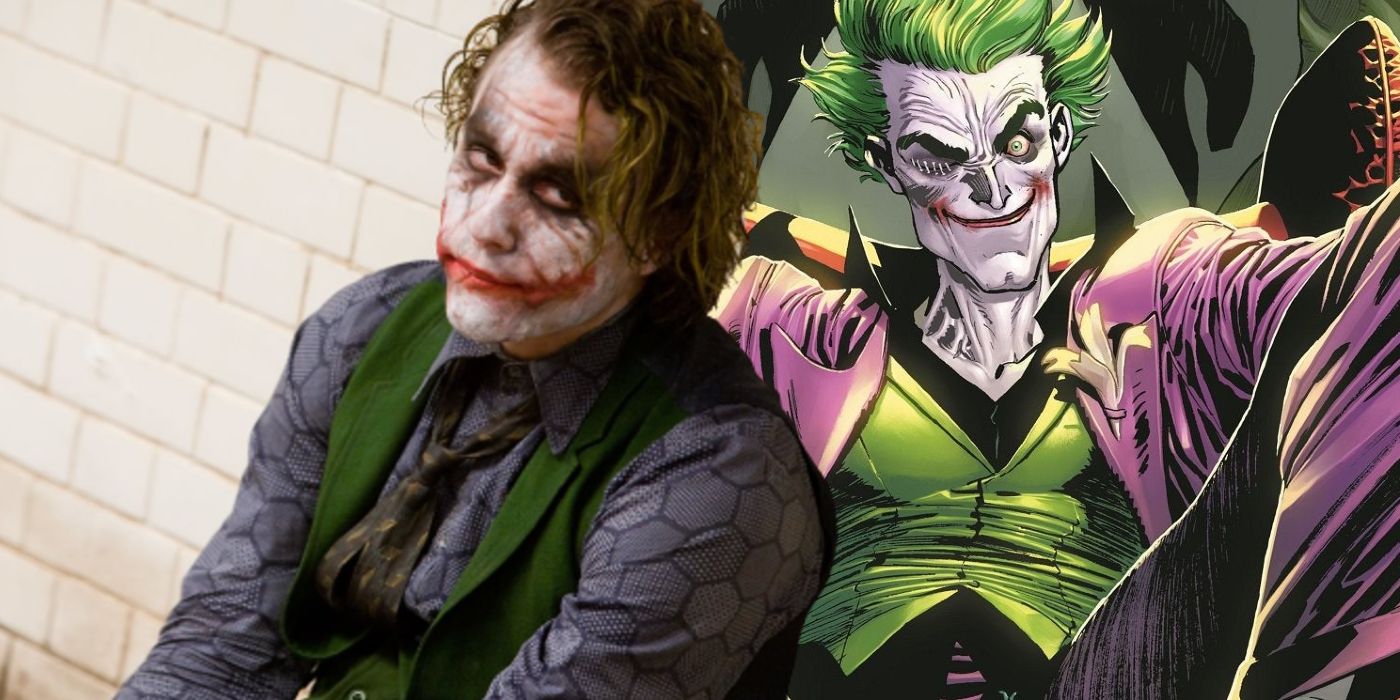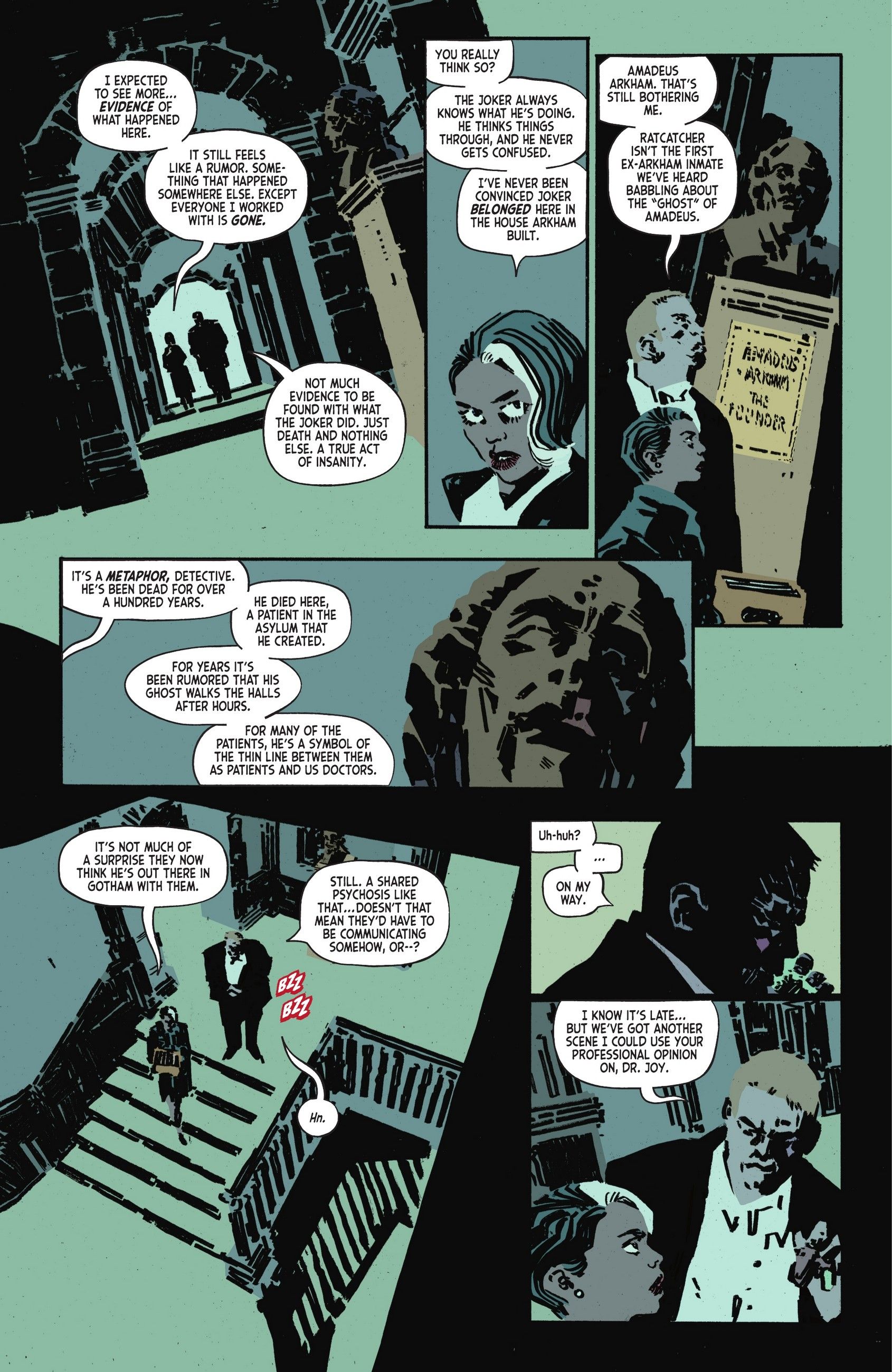Warning! Spoilers ahead for Arkham City: The Order of the World #1!
The Joker has been for years a manifestation of chaos, death, and destruction. As one of Batman’s longest-running foes, he has often been presented as an unstoppable force threatening the Caped Crusader’s immovability. While in the popular imagination, the only logical explanation for the Joker’s acts can be a deep form of insanity or psychosis, DC comics has recently confirmed that in actuality, Heath Ledger’s interpretation of the Joker from The Dark Knight is more comic accurate than Joaquin Phoenix’s from Joker.
In Arkham City: The Order of The World #1 by Dan Watters and Dani, former Arkham Asylum staff member Jacosta Joy is picking up the pieces of her life after A-Day, when Arkham Asylum was destroyed and the inmates either perished or escaped. Dr. Joy sets out to recover her patients to ensure that they can’t harm anyone else with their newfound freedom. As Dr. Joy begins making inroads into tracking down her former patients, which include Professor Pyg, Mad Hatter, and the Ten-Eyed Man, it becomes evident that the good doctor and her patients are being stalked by a particular Avenging Angel.
While in the ruins of Arkham Asylum retrieving her belongings, Dr. Joy talks with police Detective Stone about her work, the pathology of her patients, and the events of A-Day. As Stone comments on the tragedy of A-Day, and how much progress was lost towards rehabilitating the Arkhamites, he offhandedly mentions that only someone as crazy as the Joker could willfully do such damage and harm so many people. Dr. Joy retorts with her own observation that Joker has always acted with a method, and to a plan. Joy has never been convinced that Joker was criminally insane, instead stating: “I’ve never been convinced Joker belonged in the house Arkham built.” It seems that in Dr. Joy’s professional opinion, Joker was never criminally insane in the first place, and is in complete control of his faculties and the heinous acts he commits, much like Heath Ledger’s portrayal of the character in Christopher Nolan’s The Dark Knight.
In Nolan’s The Dark Knight, Joker works methodically to bring down Batman and the institutions Gotham depends on. Despite his claim that he’s just a “Dog chasing cars” and is not acting on any sort of plan, the first 10 minutes of the film disprove this claim as his complex plan to rob a mafia-controlled bank works, and leaves no accomplices to pressure, and none of the radioactive bills the police were using to track the mob movements were taken. This is in stark contrast to Joaquin Phoenix’s take on the character in the film Joker, where a downtrodden, mentally ill Arthur Fleck is pushed around and marginalized from society, only to become the Joker and lash out at society in his own way, eventually inspiring mass riots. Both depictions of the character were phenomenal in their own right, and brought out different strengths of the character, but the fact of the matter is that at least in the main DC continuity, Joker is more like Heath Ledger’s calculating anarchist than Joaquin Phoenix’s sporadic madman.
The Joker is an undeniable agent of chaos, yet it is evident that he utilizes extensive planning and forethought when it comes to devising his schemes. While the character has been portrayed by many talented actors over the decades, it is now clear that Heath Ledger’s interpretation of the character is the most comic accurate, even compared Joaquin Phoenix’s awesome portrayal of a downtrodden man pushed past the brink of sanity.


